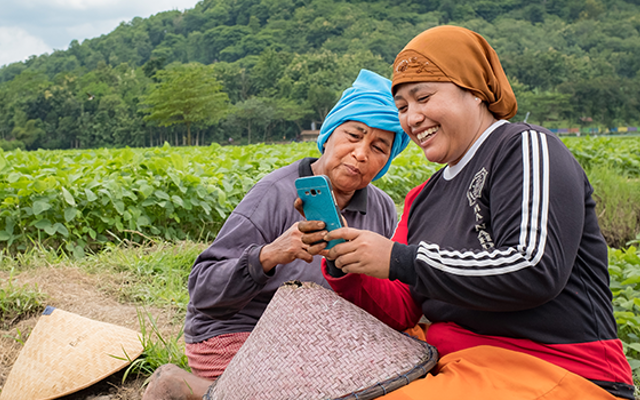GSMA Activities in ICT4D Digital Development Programs
The GSMA is a global trade association that represents the interests of mobile operators and other stakeholders in the mobile communications industry. In the context of ICT4D (Information and Communication Technologies for Development), the GSMA plays four key roles:
- Facilitating dialogue: The GSMA facilitates dialogue between mobile operators, development organizations, and other stakeholders on the use of mobile technologies for development. This includes convening events and workshops to discuss best practices, challenges, and opportunities in the field.
- Providing technical assistance: The GSMA provides technical assistance to mobile operators and other stakeholders on the use of mobile technologies for development. This includes the development of tools and resources, such as guidelines and case studies, to support the implementation of ICTD projects and initiatives.
- Conducting research: The GSMA conducts research on the impact and potential of mobile technologies for development. This includes the publication of reports and other research materials that provide insights and evidence on the use of mobile technologies in various sectors, such as healthcare, education, and agriculture.
- Advocating for policies and initiatives: The GSMA advocates for policies and initiatives that support the use of mobile technologies for development, and works to raise awareness about the potential of these technologies to benefit communities and individuals.
Overall, the GSMA plays a key role in promoting the use of mobile technologies for development, and in supporting the implementation and scaling of ICTD projects and initiatives.
Introducing the Artificial Intelligence Ethics Playbook from GSMA
Artificial intelligence is a powerful, emerging force that is transforming business and society. The potential of these technologies to unlock benefits for organisations...
How the Mobile Network Ecosystem Supports Informal Youth Employment
Youth employment is an enormous challenge in Sub-Sahara Africa (SSA). Demographically, the region is experiencing a “youth bulge” that has left a rapidly growing...
6 Digital Competency Areas for Mobile Phone Usage
A framework that maps key digital competencies and proficiency levels can be a valuable way to support the design and assessment of mobile digital skills strategies...
Apply Now: £250,000 for Climate Resilience and Adaptation Programmes
We will soon witness the unavoidable effects of climate change over the next few decades even as the global community works to limit global warming. People around...
How Startup Companies Are Using Artificial Intelligence in LMICs
Around the world, artificial intelligence is automating functions and making new services possible with breakthroughs in cheap computing power, cloud computing...
Principles for Driving the Digital Inclusion of Persons with Disabilities
Around 15 per cent of the world’s population, or an estimated one billion people are persons with disabilities. Persons with disabilities are at a disadvantage...
Closing the Mobile Phone Disability Gap in Developing Countries
The GSMA Assistive Tech programme learned through previous research that mobile phones have the potential to be a life changing technology for persons with disabilities....
Apply Now: £250,000 Grant Funding for Digital Urban Services
Urban resilience poses challenges to city authorities and urban service providers as two-thirds of the world’s population will live in cities by 2050, with...
5 Mobile Technology Trends in Humanitarian Relief Activities
2020 was a year like no other. COVID-19 digital response heightened the global need for humanitarian assistance by exacerbating existing crises and creating new...
5 Tips for Greater Inclusivity in Human Centered Design Activities
Human-centred design has become something of a buzzword in the humanitarian sector. But what does it actually mean? In the simplest terms, human-centred design...












